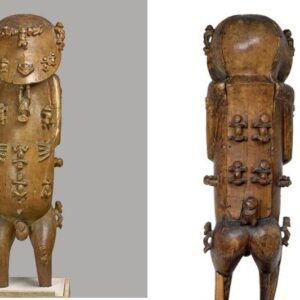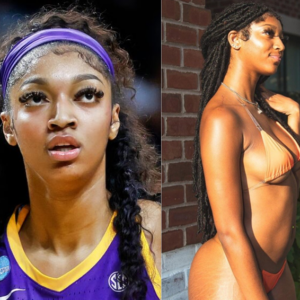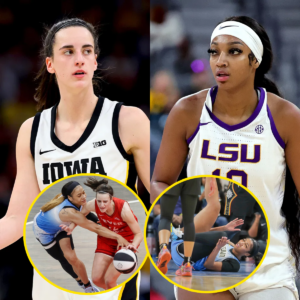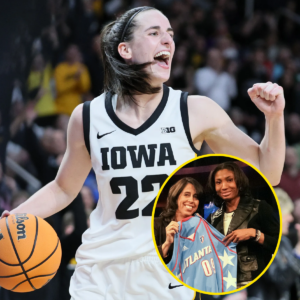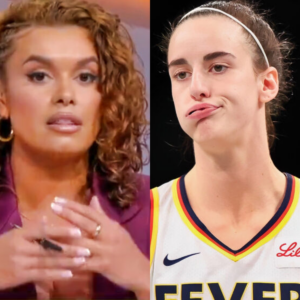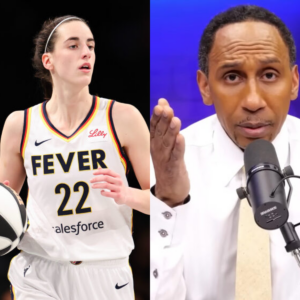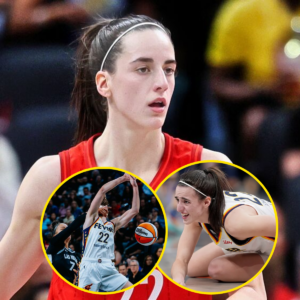“I want them to come at me,” Angel Reese said after being on the receiving end of a flagrant 2 foul. Sky coach Teresa Weatherspoon heartily agrees with Reese’s take on the physicality in the WNBA and not backing down.

Chicago Sky coach Teresa Weatherspoon, left, talks to Angel Reese during the second half of the team’s WNBA basketball game against the New York Liberty, Thursday, May 23, 2024, in New York. The Sky won 90-81.
Frank Franklin II/AP
Asked about her physicality in the paint after the Sky’s 86-82 loss to the Sun on Saturday night, rookie forward Angel Reese was direct — and her words spoke volumes.
“I want them to come at me,” she said.
As Reese continued, commenting on being on the receiving end of a flagrant foul by Sun forward Alyssa Thomas, Sky coach Teresa Weatherspoon’s mouth curled into a soft smile. She stresses to her players not to back down.
“[Reese] wants [to compete],” Weatherspoon said. “She loves [getting physical]. She enjoys it — just like every other player on this team.”
Recent dialogue around the physicality in the WNBA — specifically the veterans’ treatment of the rookies — has been, for lack of a better term, soft. In debates over No. 1 draft pick Caitlin Clark’s treatment early on, some have attempted to paint her veteran opponents as bullies whose “jealousy” is contributing to a more physical game. The reality is far less scandalous.
The WNBA has always been a physical league in which veterans — intentionally or not — baptize newcomers by fire. The league scoring leader, Mercury guard Diana Taurasi, has long reveled in opportunities to “welcome” rookies to the pros. In 2020, long before the latest crop of newcomers had even entered conversations about women’s basketball — Taurasi wasn’t mincing words.
“Every time you play rookies, you just want to [expletive] kill them,” she said then.
That type of competitive fire is lauded in professional men’s sports but criticized in women’s.
“It’s just the way that you play sports,” Sky guard Diamond DeShields said. “Because we’re women, it’s like, ‘Oh, my gosh! They’re so physical.’ You don’t say that about the NFL or the NBA, right? They go out there and literally try to kill each other every night.”
Could it be an expectation that women should play with finesse but not strength?
“You know what? People have a lot of expectations of us that we just don’t give a damn about,” DeShields said.
The influx of opinions comes with added eyes on the women’s game, which, DeShields added, is something WNBA players have dreamed about. But the physicality these new fans are seeing isn’t new.
The WNBA has never been comprised of more than 16 teams, with several forming and then folding. The relatively small size of the league has meant limited roster spots, which makes it intensively competitive, arguably more than any other league, with contentious matchups, bitter rivalries and even — gasp — flagrant fouls.
“You’ve got all these young players coming in, and the scrutiny is that we’re against them,” Thomas told the Sun-Times ahead of Saturday’s game. “But at the end of the day, we’re playing against each other, and you’re going hard against that team. Regardless if you’re a rookie or been in the league 14 years, we compete at the same level.”
Whether it’s expressed openly or covertly, the idea that physicality is a negative thing appears to be solely reserved for women’s sports.
However, it holds no weight once players step onto that court. Thomas wasn’t thinking about Reese when she wrapped her up and sent her to the floor Saturday. She was thinking about winning.
“Without saying men or women, it’s basketball,” Weatherspoon said. “Period.”
News
The stunning Temple of Garni, Armenia. Built nearly 2,000 years ago.
Nestled amidst the rugged terrain of Armenia stands a testament to ancient splendor: the stunning Temple of Garni. Built nearly 2,000 years ago, this architectural marvel is…
Reviving the Ancient Abu Simbel Temples: Restoration Efforts in Aswan, Egypt, 1968
In 1968, an extraordinary feat of human endeavor unfolded on the banks of the Nile River in Aswan, Egypt. The ancient Abu Simbel temples, standing for over…
Rare and Ancient Sculpture of Lord Ganesha Carved into the Rocks at Raghunandan Hills (Unakoti)
Nestled amidst the rugged terrain of Raghunandan Hills lies a treasure trove of history and spirituality — the rare and ancient sculpture of Lord Ganesha, immortalized in…
African Architecture: The Unique Construction of Djenné’s Great Mosque
In the heart of Mali lies a testament to human ingenuity and cultural heritage: The Great Mosque of Djenné. Built with indigenous materials, primarily mud brick and…
Bronze Spartan Shield from the Battle of Sphacteria 425 BC Displayed at Athenian Agora Museum
Among the many treasures housed at the Athenian Agora Museum, one artifact stands out for its historical significance and the stories it holds: a bronze Spartan shield,…
Enigmatic Pacific Deity: Captivating Polynesian Artistry
In the heart of Polynesia, amidst the whispers of the Pacific winds and the rhythm of ancient chants, lies a testament to the spiritual and artistic richness…
End of content
No more pages to load





